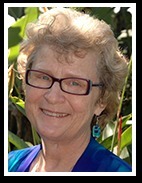Altered States Of Concsciousness Quotes
Quotes tagged as "altered-states-of-concsciousness"
Showing 1-9 of 9

“During the 1980s, a remote viewing project called Stargate was done at Fort Meade. It used binaural beat tones, transmitted through earphones, that altered brain waves. A hemi-sync that device played two different frequencies into each ear was found to produce altered states of consciousness. Perhaps this technology was derived from these experiments done in the 1960s on MKULTRA subjects.”
― Healing the Unimaginable: Treating Ritual Abuse and Mind Control
― Healing the Unimaginable: Treating Ritual Abuse and Mind Control

“One of my relatives invented the sensory deprivation tank. Appropriately, most of my family has never seen or heard of him.”
―
―

“An altered state of consciousness simply means any state of awareness that is different from our normal waking state. When we daydream or dream at night, we are in an altered state. We can also get into an altered state by using meditations, hypnosis and exercises like jogging or yoga. Using drugs or alcohol can also produce an altered state, but in a less healthy way.”
― The Complete Idiot's Guide to Short Meditations: Meditations to Quiet Your Mind and Soothe Your Soul
― The Complete Idiot's Guide to Short Meditations: Meditations to Quiet Your Mind and Soothe Your Soul

“Among DID individuals, the sharing of conscious awareness between alters exists in varying degrees. I have seen cases where there has appeared to be no amnestic barriers between individual alters, where the host and alters appeared to be fully cognizant of each other. On the other hand, I have seen cases where the host was absolutely unaware of any alters despite clear evidence of their presence. In those cases, while the host was not aware of the alters, there were alters with an awareness of the host as well as having some limited awareness of at least a few other alters. So, according to my experience, there is a spectrum of shared consciousness in DID patients. From a therapeutic point of view, while treatment of patients without amnestic barriers differs in some ways from treatment of those with such barriers, the fundamental goal of therapy is the same: to support the healing of the early childhood trauma that gave rise to the dissociation and its attendant alters.
Good DID therapy involves promoting co-consciousness. With co-consciousness, it is possible to begin teaching the patient’s system the value of cooperation among the alters. Enjoin them to emulate the spirit of a champion football team, with each member utilizing their full potential and working together to achieve a common goal.
Returning to the patients that seemed to lack amnestic barriers, it is important to understand that such co-consciousness did not mean that the host and alters were well-coordinated or living in harmony. If they were all in harmony, there would be no “disease.” There would be little likelihood of a need or even desire for psychiatric intervention. It is when there is conflict between the host and/or among alters that treatment is needed.”
―
Good DID therapy involves promoting co-consciousness. With co-consciousness, it is possible to begin teaching the patient’s system the value of cooperation among the alters. Enjoin them to emulate the spirit of a champion football team, with each member utilizing their full potential and working together to achieve a common goal.
Returning to the patients that seemed to lack amnestic barriers, it is important to understand that such co-consciousness did not mean that the host and alters were well-coordinated or living in harmony. If they were all in harmony, there would be no “disease.” There would be little likelihood of a need or even desire for psychiatric intervention. It is when there is conflict between the host and/or among alters that treatment is needed.”
―

“There are pockets of time, she thinks, where every sense rings like a bell, where the world brims with fleeting grace.”
― The Last Painting of Sara de Vos
― The Last Painting of Sara de Vos

“In a weathered closet, I saw a universe of irredeemable beauty. My eyes misted over in joy; hardly could I hold the rivers back. A galactic invitation stood in my room.”
― Journeys Beyond Earth
― Journeys Beyond Earth

“When I first tried a sensory deprivation tank, people thought I had lost my mind. In fact, I had found it.”
―
―

“Indeed, it is difficult to imagine what it would be like to live always at a single, unvarying pitch of sobriety: such a state would probably be indistinguishable from clinical depression.”
―
―
“In Zen an altered state of consciousness is no more than an ancillary phenomenon, never to be sought after for its own sake. When altered states and the expansion of consciousness are emphasized, as occurred in America and Europe, Zen falls into the proximity of drugs—an association not heard of in Japan.”
― Zen Enlightenment: Origins And Meaning
― Zen Enlightenment: Origins And Meaning
All Quotes
|
My Quotes
|
Add A Quote
Browse By Tag
- Love Quotes 101.5k
- Life Quotes 79.5k
- Inspirational Quotes 76k
- Humor Quotes 44.5k
- Philosophy Quotes 31k
- Inspirational Quotes Quotes 29k
- God Quotes 27k
- Truth Quotes 25k
- Wisdom Quotes 25k
- Romance Quotes 24.5k
- Poetry Quotes 23.5k
- Life Lessons Quotes 22.5k
- Quotes Quotes 21k
- Death Quotes 20.5k
- Travel Quotes 20k
- Happiness Quotes 19k
- Hope Quotes 18.5k
- Faith Quotes 18.5k
- Inspiration Quotes 17.5k
- Spirituality Quotes 16k
- Relationships Quotes 15.5k
- Life Quotes Quotes 15.5k
- Religion Quotes 15.5k
- Love Quotes Quotes 15.5k
- Motivational Quotes 15.5k
- Writing Quotes 15k
- Success Quotes 14k
- Motivation Quotes 13.5k
- Time Quotes 13k
- Motivational Quotes Quotes 12.5k

